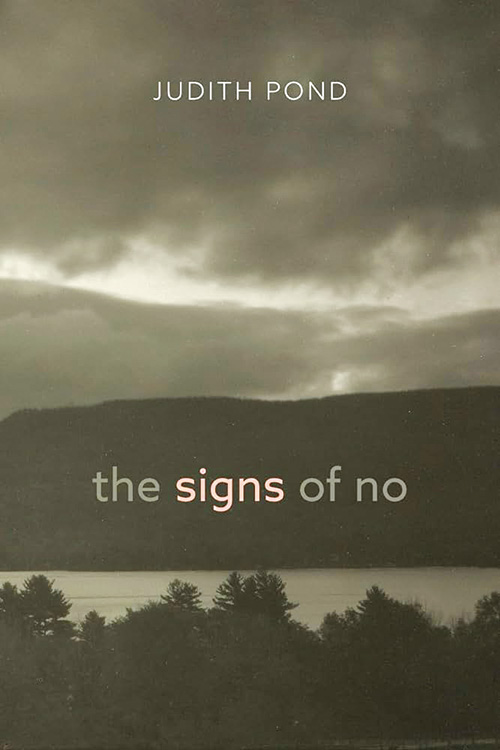Calgary writer Judith Pond’s debut novel, The Signs of No, does for its middle-aged characters what necessity is said to do for invention: it engenders or “mothers” interesting possibilities for characters in the throes of mid-life (an amorphous span from the late 30s to mid-50s). Challenging conventional gender roles in a culture that aggressively promotes individuality even as it markets and reinforces conformity, the novel ambitiously tracks multiple characters who, for the most part, are convincingly ventriloquized as distinct voices.
In her 50s, Rose is fiercely independent: She is the single mother of a similarly loner daughter, a wilful kid immersed in medieval history who resists all authority: “I can’t, I won’t, you can’t make me. The signs of No.” A troubled teen, she runs away from home and mails a cryptic postcard to her mother praising the idealism and communalism of her newfound community. “We have a whole system,” she writes. “Everybody works together… we haven’t sold out.” Grieving this loss, Rose slides into an affair with twice-divorced Morrison, whose mid-life CV covers being a womb-twin (I had to Google it), as well as an empty-nest father, counsellor for angry men, marathon runner, master gardener and winemaker. He nurtures Rose in a “motherly” way—feeding her, looking after her when she is ill. Abbey, Morrison’s latest ex, slides into an affair with Parker, a man-boy bike courier who collects toenails and calls it art. Parker is a lackadaisical father to Iris, a spirited daughter who finds a bonus mother in Abbey and a bonus father in Dave, Iris’s mother’s boyfriend—a 40-something nice guy who missed out on fathering his own kids. You get the picture. Pond artfully connects these characters who variously experience the shifting currents of each other’s psychic weather and life choices.
For me, the novel falters in its insistent quotidian accounts of appetizers and meals eaten, wine drunk, bills argued over. Some characters seem forced, as with Abbey’s Newfie-isms and Morrison’s guiltily surreal conversations with his ghostly womb twin. The novel’s title, which signals no as half of a binary, implicitly predicts it will get to yes. Still, when the prose lifted, which it often did, Pond’s wit shines and her lyric voice sings. Her description of Rose as a new mother after 40 “caught in the crosshairs of rampaging hormones and impending divorce,” with no extended family support and her best friend miles away, is beautiful and heart-wrenching. I was reminded of writer Ben Lerner who, like Pond, published a novel after three collections of poetry (Pond has published four). “Poets haven’t gotten the news that the novel is dead,” Lerner said in a Guardian interview. This novel is very much alive.
Jannie Edwards is a poet, teacher and editor in Edmonton.
_______________________________________


